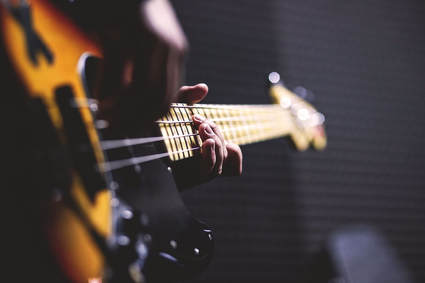|
People may choose to take music lessons later in life for a variety of reasons. Some seek to play an instrument for the many health benefits that studies show music can provide for older adults. Others may learn to play because the hobby has been on a lifelong “bucket list” of things that they want to accomplish. Still another reason that an adult may decide to become a musician later in life is the desire to join a band - an experience that can provide a fun opportunity to engage in a hobby while socializing with likeminded individuals. Adults who want to learn how to make music with the goal of becoming a member of a musical group should consider taking lessons in any of the following instruments commonly used by people in bands. 1. Vocals While some forget to think of the voice as an instrument, vocals are a key element in a majority of music. The lead vocalist is often the focal point of a band, holding the responsibility of interpreting and delivering a song’s lyrics to the audience. A lead vocalist sings the lead line or melody part of a song, and in some cases, is supported by backing vocalists, who complement the lead with harmony parts. Those who want to provide vocals in a band should enroll in singing lessons. These allow a beginning musician to strengthen his or her vocal muscles and learn to sing in a way that is best suited to the tone, range, and natural style of that person’s voice. Some people who choose to provide vocals in a band supplement their contribution to the music by learning another instrument that they can play while singing, or learn how to write the songs that the band plays. 2. KeyboardThe keyboard is an excellent instrument for an adult beginner who is drawn to the sound and graceful nature of the piano, but wants to take his or her talents to the stage. While some bands may choose to incorporate a traditional piano, the keyboard is not only transported more easily between gigs, but also offers a more versatile set of sounds for a musician to work with. On a keyboard, a musician can produce everything from melodic, classical grand piano sounds to synthesizers and warm, electric tones. The keyboardist in a band typically plays supportive parts that deftly complement the work of the other musicians and set the tone of the song in the background. To learn to play keyboards in a band, an individual can choose to take traditional piano lessons or may opt for lessons specific to keyboards. Though lessons vary stylistically by teacher, keyboard lessons tend to focus on teaching a student to play melody notes with the right hand while forming block chords with the left. Conversely, piano lessons tend to give students a greater range of ability by training them to play melody and block chords with both hands. 3. Bass The bass may be the most underappreciated instrument in music. According to an article published on Guitar World Magazine’s website, a recent study found that the bassist may be the most important player in a band. Studies on test subjects’ abilities to detect discrepancies in low and high frequency tones in music indicated that listeners are more likely to notice flaws in the bassline compared to those in the scales played by the lead guitarist. This requires bass players to be extremely competent at providing rhythmic and harmonic foundation to a song. The standard bass has a body similar to that of a guitar, but is equipped with four much thicker strings that emit low tones. Adult beginners who take bass lessons will learn to play single, root notes that provide the integral support other musicians need to create balanced, well-rounded music. 4. DrumsLike the bass, the drums do not receive the level of recognition that they deserve, but have an indispensable role in the creation of quality music. The drummer is commonly known as the “backbone” of the band, and his or her ability to perfectly time a song by playing a steady beat is what enables other musicians to play together cohesively. Some beginners will select drums as their instrument of choice because they have natural rhythm and coordination that lends itself to developing a true talent on the instrument. However, many professional instructors within the music industry assert that almost anyone can learn to play the drums well with proper lessons and a dedication to regular practice. 5. Electric guitar The electric guitar is the instrument that springs to mind first for many people when they think of the instruments in a band. Since it was first invented in the early decades of the 20th century, the electric guitar has changed the course of music, transforming the pop genre specifically through the work of legends like Jimi Hendrix, Eric Clapton, and Chuck Berry. It is an iconic instrument that is one of the most popular among music students in the United States. Bands often have two electric guitarists - one who plays the rhythm part of a song, and one who plays the lead, or a pair of guitarists who share both roles. The rhythm guitarist is the one who fills out a tune by playing full chords that are on beat with the rest of the musicians. This provides a strong layer of music for the lead guitarist to play over. Accomplished lead guitarists have a significant influence over the music’s overall style, and must develop strong technical and improvisational skills that allow them to blend guitar solos neatly into the tune created by the rest of the band. Comments are closed.
|
Photo used under Creative Commons from Marina K Caprara
 RSS Feed
RSS Feed
